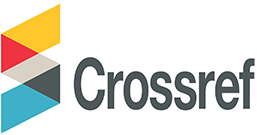Factors Affecting International Students’ Academic Achievement in Azerbaijan
##semicolon##
https://doi.org/10.69760/aghel.0250040011##semicolon##
Higher education##common.commaListSeparator## international students##common.commaListSeparator## academic achievement##common.commaListSeparator## challenges##common.commaListSeparator## AzerbaijanSantrauka
The various challenges faced by international students have been investigated in most countries. However, this study was the first to investigate international students’ challenges in their academic life in Azerbaijan and how their academic achievement is affected by academic, social, cultural, and psychological factors. Its purpose was to raise awareness of the problems of international students so as to contribute to the internationalization of universities by developing more appropriate strategies. This exploratory study applied a qualitative research design. It was determined that international learners’ main challenges dealt primarily with attitude and communication, as well as academic factors. In-depth analysis yielded unexpected results: Whereas the academically satisfied students perceived academic factors as the main impactful factors affecting their academic achievement, for the academically unsatisfied students, psychological factors were more prominent. Moreover, the international students were not provided with efficient institutional supports and assistance to overcome challenges. This research is intended to catalyze future studies and help with developing more focused, purposeful, and solution-oriented approaches in this field.
##submission.citations##
Ahmadova, F. (2018, November 17). Azerbaijan passion of international students. Azerbaijan, 9.
Babazadə, Z., & Qənbərov, M. (2025). Ramiz Rövşənin “Bu Dünyanin Hər Sifəti” Adli Kitabinda Yer Alan Bəzi Şeirlərində Fəlsəfi Məsələlərin Şərhi. Global Spectrum of Research and Humanities, 2(3), 92-101.
Babbie, E. (2010). The practice of social research. (12th ed.). CENGAGE Learning.
Bailey, T. H., & Phillips, L. J. (2015). The influence of motivation and adaptation on students’ subjective well-being, meaning in life and academic performance. Higher Education Research & Development. 35(2), 201–216. http://doi.org/10.1080/07294360.2015.1087474
Baklashova, T. A., & Kazalov, A. V. (2016). Challenges of international students’ adjustment to a higher education institution. International Journal of Environmental & Science Education, 11(8), 1821–1832. http://doi.org/10.12973/ijese.2016.557a
Cortazzi, M., & Jin, L. (2002). Communication for learning across cultures. In McNamara, D. & Harris, R. (Eds.), Overseas students in higher education: Issues in teaching and learning (pp 78–79). Taylor & Francis e-Library.
Flores, M. A., Simão, A. M. V., & Carrasco, V. (2012). Tutoring in higher education in Portugal and Spain. In O’Meara, J. & Spittle, M. (Eds.), Internationalising education: Global perspectives on collaboration and change (p. 119). Nova Science Publishers.
Freeman, K., Nga, E., & Mathews, M. (2017). International students challenges and academic adjustment in higher education in Malaysia. Special Issue, 29(1), 131–134.
Gautam, C., Lowery, C. L., Mays, C., & Durant, D. (2016). Challenges for global learners: A qualitative study of the concerns and difficulties of international students. Journal of International Students, 6(2), 501–526.
Institute of International Education (IIE). (2013). International students by academic level, 2011/12-2012/13. Open Doors Report on International Educational Exchange. www.iie.org/opendoors
Khan, A., Hamdan, A. R., Ahmad, R., & Mustaffa, M. S. (2015). International student’s academic achievement: Contribution of gender, self-efficacy and socio-cultural adjustment. Asian Social Science, 11(10), 152–158.
Li, G., Chen W., & Duanmu, J. (2010). Determinants of international students’ academic performance: A comparison between Chinese and other international students. Journal of Studies in International Education, 14(4), 389–405. http://doi.org/10.1177/1028315309331490
Liu, D. (2016). Strategies to promote chinese international students’ school performance: Resolving the challenges in American higher education. Asian-Pacific Journal of Second and Foreign Language Education, 1(8), 1–15. http://doi.org/10.1186/s40862-016-0012-9
McGarvey, A., Brugha, R., Conroy, R. M., Clarke, E., & Byrne, E. (2015). International students’ experience of a Western medical school: A mixed methods study exploring the early years in the context of cultural and social adjustment compared to students from the host country. BMC Medical Education, 15(111), 1–13. http://doi.org/10.1186/s12909-015-0394-2
Mikkonen, J., Ruohoniemi, M., & Lindblom-Ylanne, S. (2011). The role of individual interest and future goals during the first years of university studies. Studies in Higher Education, 38(1), 1–16.
Pruitt, F. J. (1978). The adaptation of African students to American society. International Journal of Intercultural Relations, 2(1), 90–118.
Quliyeva, S., & Babazade, Z. (2025). Müasir Qlobal Kontekstdə Azərbaycan Ədəbiyyatinin İnkişafi və Beynəlxalq Ədəbi Təsirlər: Təsirləri Formalaşdiran Amillər. Journal of Azerbaijan Language and Education Studies, 2(3), 184-189.
Rafiq qızı Cabbarova, S. (2025). Məktəbəqədər yaşlı uşaqların intellektual hazırlığı və inkişafı. Global Spectrum of Research and Humanities , 2(4), 48-58. https://doi.org/10.69760/gsrh.0250203003
Sakurai, Y., & Pyhältö, K. (2018). Understanding students’ academic engagement in learning amid globalizing universities. Annual Review of Comparative and International Education 2017, 31–38. http://doi.org/10.1108/S1479-367920180000034003.
Segal, T. (2021, April 28). What is culture shock? Investopedia. https://www.investopedia.com/terms/c/culture-shock.asp#:~:text=Culture%20shock%20is%20a%20sense,discomfort%2C%20adjustment%2C%20and%20acceptance
State programme on increasing the international competitiveness of the higher education system in the Republic of Azerbaijan for 2019–2023. (2018). https://static.president.az/media/W1siZiIsIjIwMTgvMTEvMTYvMjN1anpiN2pfRE9WTEFUX1BST1FSQU1JXzIwMTlfMjAyM19DVV9JTExBUl9VQ0hVTl9BWkFSQkFZQ0FOX1JFU1BVQkxJS0FTSU5EQV9BTElfVEFIU0lMX1NJU1RFTUlOSU5fQkVZTkFMWEFMUV9SQVFBQkFUTElMSVlJTklOX0FSVElSSUxNQVNJX1VaUkFfUkFTTUlfU0FOQURMQVJfWEFSSUNBLnBkZiJdXQ?sha=5c74bc1db87ead82
Tas, M. (2013). International students: Challenges of adjustment to university life in the U.S. International Journal of Education, 5(3), 1–10. http://doi.org/10.5296/ije.v5i3.3481
Thawabieh, A. M. (2016). Factors affecting university students’ achievement. British Journal of Education, Society & Behavioural Science, 14(4), 1–11. http://doi.org/10.9734/BJESBS/2016/23334
The Ministry of Education of the Republic of Azerbaijan. (2018). Annual Report 2017. Global Media Printing Company.
The Ministry of Education of the Republic of Azerbaijan. (2019). Annual Report 2018. AzEXPO Polygraphy Center.
Titrek, O., Hashimi, H. S., Ali, S., & Nguluma, H. F. (2016). Challenges faced by international students in Turkey. The Anthropologist, 24(1), 148–156. http://doi.org/10.1080/09720073.2016.11892000
Townsend, T. (2012). Third Millennium Leaders. In O’Meara, J. & Spittle, M. (Eds.), Internationalising Education: Global Perspectives on Collaboration and Change (pp. 37–70). Nova Science Publishers.
Veliyev, E. (2025). Mədəniyyət və dilin müasir dövrdəki inkişafı və qarşılıqlı təsiri. Global Spectrum of Research and Humanities , 2(3), 74-79. https://doi.org/10.69760/gsrh.0203025009
Wu, H., Garza, E., & Guzman, N. (2015). International student’s challenge and adjustment to college. Education Research International, 1–9. http://doi.org/10.1155/2015/202753
Yang, Y., Zhang Y., & Sheldon, K.M. (2017). Self-determined motivation for studying abroad predicts lower culture shock and greater well-being among international students: The mediating role of basic psychological needs satisfaction. International Journal of Intercultural Relations, 63, 95–104. http://doi.org/10.1016/j.ijintrel.2017.10.005
Zhou, Y., Jindal-Snape D., Topping, K., & Todman, J. (2008). Theoretical models of culture shock and adaptation in international students in higher education. Studies in Higher Education, 33(1), 63–75. http://doi.org/10.1080/03075070701794833
##submission.downloads##
Publikuota
Numeris
Skyrius
##submission.license##
##submission.copyrightStatement##
##submission.license.cc.by-nc4.footer##






